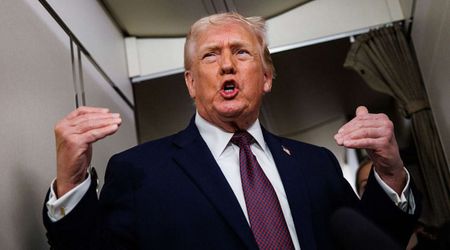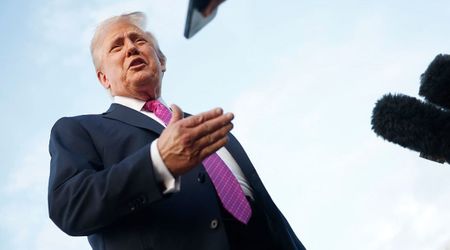Historic Crackdown Against Companies Involved in Spam Robocalls in U.S.

The Federal Trade Commission (FTC) along with more than 100 federal and state law enforcement partners, including attorneys general from all 50 states and the District of Columbia, has declared a war on illegal telemarketing calls. With the joint initiative, aptly named 'Operation Stop Scam Calls,' the authorities are taking aim at operations responsible for billions of spam calls to U.S. consumers, per Light Reading. The crackdown not only targets the telemarketers and the companies that employ them but also goes after lead generators who deceive consumers into consenting to receive calls and VoIP service providers that facilitate illegal robocalls, often originating overseas.

Historic crackdown on illegal telemarketing
The joint efforts of the FTC and its law enforcement partners have resulted in more than 180 actions against illegal telemarketing operations. This historic crackdown has involved numerous federal and state agencies, including the Department of Justice, Federal Communications Commission, Social Security Administration Office of the Inspector General, and the U.S. Postal Inspection Service, per The Federal Trade Commission. The combined efforts are an essential step forward in safeguarding consumers from the ever-persistent nuisance of spam calls.

Action against lead generator Fluent
One of the primary targets of Operation Stop Scam Calls is Fluent, LLC, and its related corporate defendants. The FTC alleges that Fluent tricked consumers into providing consent to receive marketing solicitations, including robocalls and telemarketing calls, from numerous third parties. The company used deceptive ads to lure consumers into its websites, where they unknowingly agreed to receive spam calls. Under the proposed order, Fluent will be required to pay a $2.5 million civil penalty, ban its involvement in robocalls and delete all previously collected consumer information, per FTC.
Penalty on Viceroy Media Solutions
Sunil Kanda and Quynh Tran, the owners of Viceroy Media Solutions, LLC, doing business as quick-jobs.com and localjobindex.com were accused of violating the FTC Act and the Telemarketing Sales Rule (TSR) by deceiving consumers into consenting to receive robocalls. The defendants operated lead generation websites that claimed to offer local job listings in exchange for personal information. However, the real purpose was to obtain consumer consent and sell leads to telemarketers for unlawful robocalling. The proposed settlement imposes a $913,636 civil penalty on the defendants.

Yodel Technologies imposed $1 Million penalty
Yodel Technologies, LLC, and its owner Robert Pulsipher were charged with violating the TSR by making illegal robocalls to consumers whose numbers were registered on the DNC Registry. Yodel provided soundboard calling services that used prerecorded audio clips to make the robocalls sound more authentic. The proposed order bans Yodel and Pulsipher from telemarketing activities and imposes a $1 million civil penalty.
Solar Xchange – Unlawful telemarketing calls on behalf of Vision Solar
Solar Xchange LLC, operating as Energy Exchange, along with its owner Mark Getts, was accused of making unlawful telemarketing calls on behalf of Vision Solar, a company selling solar panels. The defendants allegedly violated the FTC Act, TSR and Arizona's Consumer Fraud Act and Telephone Solicitation Act. The proposed order prohibits Solar Xchange and Getts from misrepresenting affiliations, making unsubstantiated claims about solar panel costs, and engaging in abusive telemarketing practices. The order also imposes a partially suspended civil penalty of $13.8 million.
Hello Hello Miami penalised for assisting foreign robocallers
Miami-based Hello Hello Miami (HHM) and Luis E. Leon Amaris were accused of facilitating the transmission of around 37.8 million illegal robocalls for foreign telemarketers. HHM operated as a 'point of entry' or 'gateway' VoIP service provider, allowing overseas robocallers to inundate U.S. consumers with deceptive robocalls impersonating Amazon.com. The FTC seeks to permanently bar HHM and Amaris from assisting illegal robocalls and obtain monetary relief for defrauded consumers, along with civil penalties.
Enforcement efforts and partnerships
Operation Stop Scam Calls is part of a broader initiative to combat illegal telemarketing. The FTC has filed multiple complaints against companies involved in unlawful telemarketing activities. Notable among them are actions against Stratics Networks, Inc. and XCast Labs, Inc., for enabling the transmission of illegal VoIP and ringless voicemail robocalls. Additionally, the FTC's Project Point of No Entry targets 'point of entry' VoIP service providers to halt overseas illegal robocalls.





















